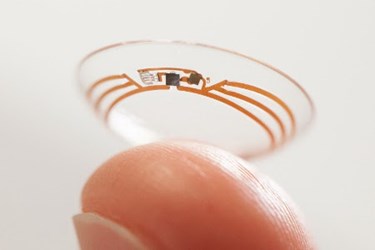Verily, Novartis Push Back Start Date For Human Testing Of Smart Contact Lenses

Verily and Novartis have pushed back the launch date for a clinical trial to test “smart” contact lenses in human participants, a spokesperson from Novartis told Reuters. Despite a now indefinite start date, the companies report the technology is “progressing steadily.”
Verily and Novartis’ partnership began in 2014 with the announcement of plans to develop two different “smart lenses:” one that measured glucose levels in tears and another with autofocusing technology. The companies planned to combine then-Google’s smart lens technology and research capabilities with Alcon’s expertise in eye disease management to “unlock a new frontier” in eye care.
Novartis CEO Joe Jimenez told Swiss newspaper Le Temps last year that the technology’s development calendar was “on track” and that the companies expected to launch clinical trials for the autofocusing lens in 2016. In an e-mail to Reuters, a Novartis spokeswoman said that the original plans were delayed and a new launch date had not been set.
“It’s too early to say when exactly human clinical trials for these lenses will begin,” said the spokeswoman. “This is a very technically complex process and both sides are learning as we go along. We will provide updates at the appropriate time.”
Alcon recently has undergone a change-up in executive leadership, and Novartis recently hired Mike Ball — former CEO of Hospira — to help turn Alcon around. The change was meant to offset a 13 percent drop in revenue in the beginning of what CEO Joe Jimenez has termed “a transition year.” Jimenez expressed confidence that the strength of Alcon’s pipeline will ensure long-term growth.
According to the spokeswoman, the contact lenses are “progressing steadily” and remain an important component of Alcon’s growth strategy. “The ‘smart lens’ technology has the potential to transform eyecare and further enhance our pipeline in the contact lens and intraocular space,” she said.
In April, Alcon partnered with eye device startup PowerVision, which has developed a fluid-based lens implant for cataract patients. The deal will provide PowerVision with the funds to proceed with development plans and clinical trials, while giving Alcon the option of acquiring the company in the future.
Google announced in July plans to incorporate artificial intelligence into eye diagnostics, with the help of DeepMind and over one million eye scans from the U.K.’s National Health Service (NHS). Their proposed tool would be able to reach a definitive diagnosis with a single scan, giving patients a better chance of receiving the correct treatment sooner.
